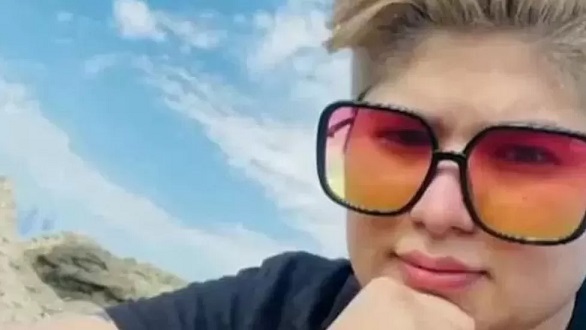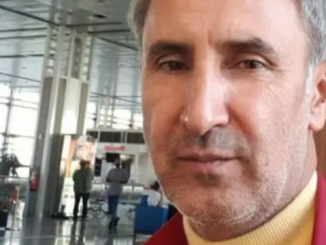
Two LGBT activists have been sentenced to death in Iran, a rights group says.
The Hengaw Organization for Human Rights reported that a court in Urmia had found Zahra Seddiqi Hamedani, 31, and Elham Choubdar, 24, guilty of “spreading corruption on Earth”.
It said prosecutors had accused them of promoting homosexuality, promoting Christianity and communicating with media opposed to the Islamic Republic.
The activists were apparently told of the verdicts at Urmia Central Prison.
There was no immediate confirmation from the judiciary, but many Iranians took to social media to demand that the death sentences be revoked.
Hengaw said Seddiqi Hamedani, also known as Sareh, was from the predominantly Kurdish town of Naqadeh in West Azerbaijan province, which borders both Turkey and Iraq.
Amnesty International previously described her as a “gender non-conforming human rights defender” who it said had been detained “solely in connection with her real or perceived sexual orientation and gender identity as well as her social media posts and statements in defence of [LGBT] rights”.
It reported that she was arrested in October 2021 by the Islamic Revolution Guard Corps (IRGC) while attempting to cross into Turkey to seek asylum.
It cited her as saying that she was forcibly disappeared for 53 days, during which an IRGC agent allegedly subjected her to “intense interrogations accompanied by verbal abuse” and “threatened to execute or otherwise harm her and take away the custody of her two young children”.
Amnesty said the accusations of “spreading corruption on Earth” through promoting homosexuality and communicating with hostile media stemmed from Seddiqi Hamedani’s public defence of LGBT rights and her appearance in a May 2021 BBC documentary about abuses that LGBT people were suffering in Iraq’s semi-autonomous Kurdistan Region, where she had been living.
Under Iranian law, same-sex sexual conduct is a criminal offence, with punishments ranging from flogging to the death penalty.
The accusation of promoting Christianity was for wearing a cross necklace and attending a house church in Iran several years ago, Amnesty added.
Citizens who are not recognized as Christians, Zoroastrians, or Jews may not engage in public religious expression in Iran.
Before she attempted to leave Iran, Seddiqi Hamedani recorded a video in which she said: “I want you to know how much pressure we LGBT people endure. We risk our lives for our emotions, but we will find our true selves… I hope the day will come when we can all live in freedom in our country.”
“I am journeying toward freedom now… If I don’t make it, I will have given my life for this cause.”
Hengaw provided no details about Elham Choubdar other than saying that she was from Urmia.
Source: bbc.co.uk






Be the first to comment